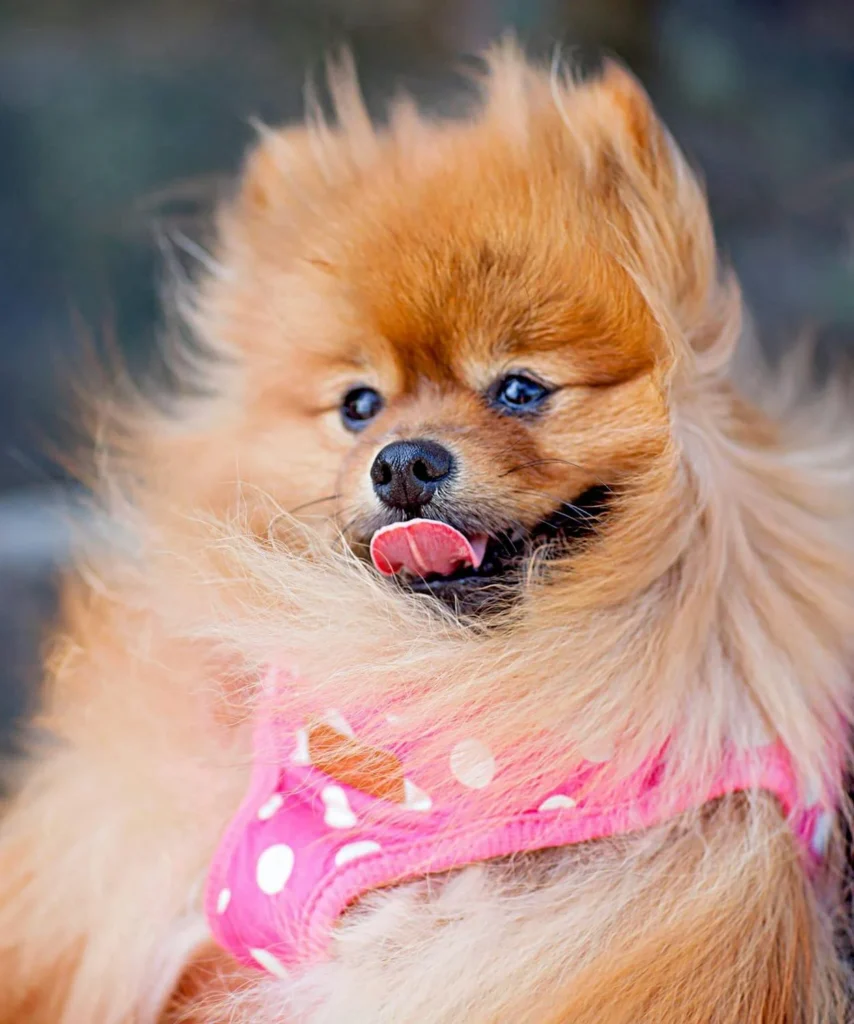🐾 Introduction: The Curious Case of the Dachshund’s Heritage
Have you ever looked at your adorable sausage-shaped friend and wondered, “Is my dachshund a pedigree dog?” You’re not alone! The dachshund, with its long body and short legs, has captured hearts worldwide. But beyond their charming appearance lies a rich history and a complex answer to the pedigree question. In this comprehensive guide, we’ll dive deep into the world of dachshunds, exploring their origins, varieties, and what it truly means to be a pedigree pooch.
🧬 Understanding Pedigree: What Does It Really Mean?
Before we dive into the specifics of dachshunds, let’s clarify what “pedigree” actually means in the dog world.
📜 Pedigree Defined:
A pedigree dog is one whose lineage is recorded and registered with a recognized kennel club. This means:
- Both parents are of the same breed
- The dog’s ancestry can be traced back several generations
- The breed conforms to a specific standard
🏆 The Importance of Pedigree:
- Predictability in appearance and temperament
- Preservation of breed characteristics
- Eligibility for certain dog shows and breeding programs
🌭 The Dachshund: A Brief History
Now that we understand pedigree, let’s explore the dachshund’s fascinating history.
🕰️ Origins:
- Developed in Germany over 300 years ago
- Originally bred for hunting badgers (hence the name: “Dachs” = badger, “Hund” = dog)
- Recognized by the American Kennel Club (AKC) in 1885
🦡 From Hunter to Companion:
The dachshund’s journey from badger hunter to beloved pet is a testament to the breed’s adaptability and charm.
🐕 Dachshund Varieties: A Diverse Breed
One of the most interesting aspects of dachshunds is their variety. Let’s break it down:
Size Varieties:
- Standard: 16-32 pounds
- Miniature: 11 pounds and under
- Tweenie (unofficial): Between standard and miniature
Coat Types:
- Smooth (short-haired)
- Long-haired
- Wire-haired
Color Variations:
- Solid colors: Red, cream, black, chocolate
- Two-color patterns: Black and tan, chocolate and tan
- Dapple patterns
- Brindle (rare)
Let’s compare these varieties in a handy table:
| Variety | Size | Coat Type | Common Colors | Pedigree Status |
|---|---|---|---|---|
| Standard Smooth | 16-32 lbs | Short | Red, Black & Tan | ✅ |
| Miniature Long | Under 11 lbs | Long | Cream, Dapple | ✅ |
| Standard Wire | 16-32 lbs | Wire | Wild Boar, Brindle | ✅ |
| Tweenie Smooth | 11-16 lbs | Short | Chocolate, Red | ⚠️ (Not officially recognized) |
🏅 Are Dachshunds Pedigree? The Verdict
Now for the big question: Are dachshunds pedigree dogs? The answer is… it depends!
✅ Pedigree Dachshunds:
- Registered with kennel clubs like AKC, UKC, or FCI
- Have documented lineage
- Conform to breed standards
⚠️ Non-Pedigree Dachshunds:
- Mixed breed dachshunds
- Dachshunds without documented lineage
- Dachshunds that don’t meet breed standards
Remember, being pedigree doesn’t make a dog “better” – it simply means their lineage is documented and they meet certain breed standards.
🆚 Dachshunds vs. Other Breeds: A Comparison
How do dachshunds stack up against other popular breeds? Let’s take a look:
| Breed | Size | Lifespan | Intelligence | Pedigree Status | Popularity Rank (AKC 2021) |
|---|---|---|---|---|---|
| Dachshund | 🐕 | 12-16 years | 🧠🧠🧠 | ✅ | #10 |
| Labrador Retriever | 🐕🐕🐕 | 10-12 years | 🧠🧠🧠🧠 | ✅ | #1 |
| French Bulldog | 🐕🐕 | 10-12 years | 🧠🧠🧠 | ✅ | #2 |
| Chihuahua | 🐕 | 14-16 years | 🧠🧠🧠 | ✅ | #37 |
| Mixed Breed | Varies | Varies | Varies | ❌ | N/A |
🏆 The Pros and Cons of Pedigree Dachshunds
Considering a pedigree dachshund? Let’s weigh the pros and cons:
👍 Pros:
- Predictable size, appearance, and temperament
- Eligibility for dog shows and breeding programs
- Access to breed-specific health information
👎 Cons:
- Potentially higher cost
- Risk of inherited health issues due to limited gene pool
- May not be as genetically diverse as mixed breeds
🩺 Health Considerations for Pedigree Dachshunds
While pedigree dachshunds have many wonderful qualities, they can be prone to certain health issues:
- Intervertebral Disc Disease (IVDD)
- Patellar Luxation
- Eye problems (e.g., progressive retinal atrophy)
- Obesity (due to their long body shape)
It’s crucial to work with reputable breeders who prioritize health and conduct appropriate genetic testing.
🏋️♀️ Caring for Your Pedigree Dachshund
Whether your dachshund is pedigree or not, proper care is essential. Here are some tips:
- Exercise: 🚶♂️ Daily walks and play sessions, but avoid excessive jumping
- Diet: 🥩 High-quality dog food appropriate for their size and activity level
- Grooming: 🛁 Regular brushing; frequency depends on coat type
- Training: 🎓 Early socialization and consistent, positive reinforcement
- Health Check-ups: 👨⚕️ Regular vet visits and monitoring for breed-specific issues
🌟 Famous Pedigree Dachshunds
Dachshunds have won hearts around the world, including those of many celebrities:
- Crusoe the Celebrity Dachshund: 🌭 Social media star with millions of followers
- Obie: 🏋️♂️ Once the world’s fattest dachshund, now a weight loss inspiration
- Waldi: 🏅 The first official Olympic mascot (1972 Munich Games)
These famous pups showcase the charm and versatility of the breed.
🧬 The Future of Pedigree Dachshunds
As our understanding of genetics improves, the future of pedigree breeding is evolving:
- Genetic Testing: 🧪 More comprehensive tests to reduce inherited diseases
- Outcrossing Programs: 🔄 Carefully introducing genetic diversity to improve health
- Breed Standard Evolution: 📏 Potential adjustments to standards to prioritize health over appearance
📚 Conclusion: The Pedigree Perspective
In conclusion, many dachshunds are indeed pedigree dogs with a rich history and documented lineage. However, being pedigree isn’t the be-all and end-all of what makes a great pet. Whether your dachshund is a pedigree pooch or a lovable mix, what matters most is the joy and companionship they bring to your life.
Remember:
- Pedigree status is about documented lineage, not superiority
- Health and temperament should always be prioritized over pedigree papers
- Responsible breeding practices are crucial for the future of the breed
Whether you’re considering adding a dachshund to your family or already have one, understanding their background can help you provide the best care possible. Pedigree or not, these charming “sausage dogs” have a way of stealing hearts with their unique looks and big personalities!
❓ FAQs About Dachshund Pedigrees
- Q: How can I tell if my dachshund is pedigree?
A: Check for registration papers from recognized kennel clubs or conduct a DNA test for breed verification. - Q: Are pedigree dachshunds more expensive than non-pedigree ones?
A: Generally, yes. Pedigree dachshunds from reputable breeders often cost more due to breeding and registration expenses. - Q: Can I show my dachshund if it’s not pedigree?
A: Most major dog shows require dogs to be registered pedigrees. However, there are events for mixed breeds too. - Q: Are pedigree dachshunds healthier than mixed breeds?
A: Not necessarily. While pedigrees have predictable traits, they can also have breed-specific health issues. Mixed breeds may benefit from hybrid vigor. - Q: Can I breed my pedigree dachshund?
A: While it’s possible, responsible breeding requires extensive knowledge, health testing, and often approval from kennel clubs. - Q: Do all coat types in dachshunds qualify for pedigree status?
A: Yes, smooth, long-haired, and wire-haired dachshunds can all be pedigree if they meet breed standards and have documented lineage. - Q: Are “tweenie” dachshunds considered pedigree?
A: “Tweenies” aren’t officially recognized by major kennel clubs, so they typically can’t be registered as pedigrees. - Q: Can pedigree dachshunds participate in sports like agility?
A: Absolutely! Many pedigree dachshunds excel in various dog sports, including agility, earthdog trials, and obedience. - Q: Is it better to adopt a pedigree dachshund or a rescue?
A: This depends on your preferences and circumstances. Both options can provide loving companions, but rescues may have unknown backgrounds. - Q: How far back can a pedigree dachshund’s lineage be traced?
A: Depending on the documentation, pedigree lineages can often be traced back many generations, sometimes over a century!
Remember, whether your dachshund is a pedigree champion or a charismatic mixed breed, the most important thing is the love and care you provide. Each dachshund, regardless of their pedigree status, has the potential to be a wonderful, loyal companion. Happy dachshund parenting! 🌭❤️🐾



